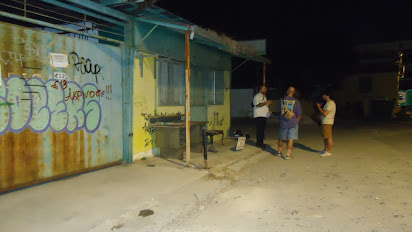Over the summer I spent an evening in Nicosia (Lefkosia/Lefkoşa), the capital city of Cyprus, the last divided capital in the world. The area of Nicosia that encapsulates the green line is referred to by Cypriots, and in particular residents of Nicosia, as 'within the walls' (εντός των τειχών). Here you can find the old town, which has been largely maintained in its original form, comprising of crumbling stone buildings and others that are adorned with street art done by locals. This space where communities (once tense) cross and live so tighly amongst each other is also one where creativity prospers.
Cyprus is an island made up of several nationalities, ethnicities, and religions; however, the two largest (and oldest) communities are the Greek-speaking Cypriots and the Turkish-speaking Cypriots. The two communities have been divided (with only few exceptions) socially, politically, and geographically since the 1960s. Having undergone British colonialism together, the notorious 'divide and conquer' policy was predominantly accountable for their communal fracture, since the collaboration of the two Cypriot communities during the colonialist period of the 1920s-1960s was severely damaging to imperialist's goals to govern the island. Colonialism fostered chauvinism within both communities, leading to inter- and intra-communal tensions for both Greek-speakers and Turkish-speakers. Nationalist ideologies on both sides strove to differentiate themselves from one another, attaching to the two mainlands whose languages they spoke - Greece and Turkey.
Post-colonialism in this context, as well as many others, is a futile term; since, despite the island's technical independence it still aches with the reverbarations of colonialism everyday:
the curtailment of the Cypriot dialect in media, education, public speeches, the press, the workforce
the ever-present Greek and Turkish flags
the adoption of the Greek national anthem
the list tirelessly goes on.
Despite the ongoing impact of imperialism and neo-colonialism, there are many Cypriots who challenge their reality and want to nurish a bi-communal, Cypriotist identity rather than two divisive ones. The Cypriot historical context I provided and a desire for an actively anti-colonialist identity are just some of the elements that stimulate my work.





Comments
Post a Comment